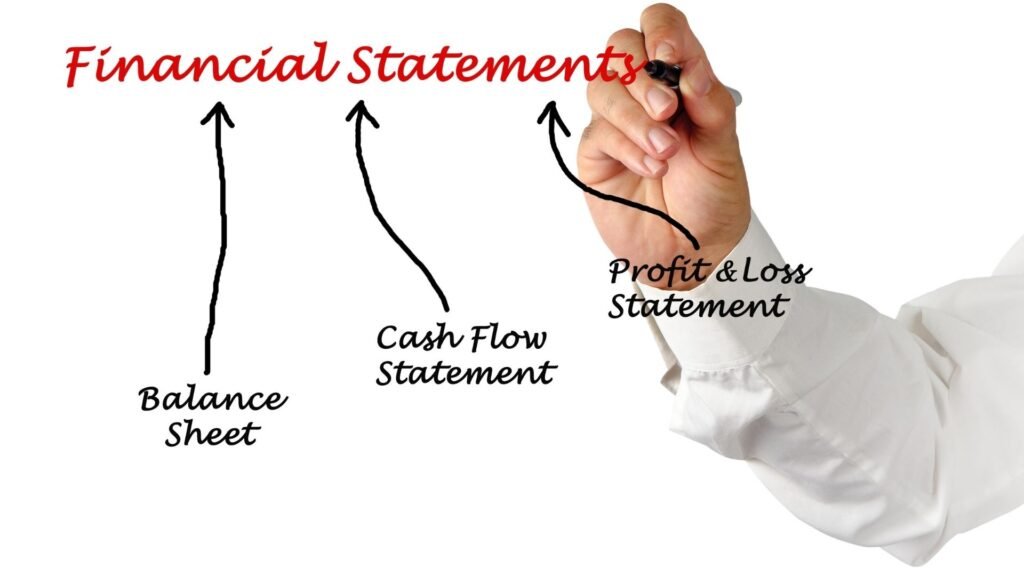WHEN A FAMILY BUSINESS NEEDS TO BE SOLD
Across the world, small family-managed businesses are created by their owners. This can be for any number of reasons. They may have a brilliant idea or unique product. At the time there were no suitable employment opportunities. Or a hobby that grew and grew into a family business. Or even to fulfill the very basic needs of life, to pay the bills and to put food on the table.
To test your understanding of this post regarding a Family Business, click HERE.
There may come a time when the owner of the business needs to be sold. This is new ground, the business may have been the livelihood for decades. What steps can be taken to increase, even dramatically increase the value of your family business?
Finscreener is a powerful financial analysis tool that allows investors and traders to screen and analyze stocks, ETFs, mutual funds, and cryptocurrencies based on various fundamental and technical criteria quickly and easily. The platform provides users with a wide range of filters, charts, and tools to help them find and analyze the right investment opportunities.
SUBSCRIBER TO FINSCREENER, CLICK BELOW
WHY SELL A FAMILY BUSINESS?

A family business owner may consider selling their company for a variety of reasons. To guarantee a successful sale of their business, small business owners must have a plan in place. The plan will deal with the difficulties and seek professional guidance as needed. The correct strategy in selling the family business can dramatically increase its value.
If you are seeking advice about the future direction of your family business, hit the button below and fill out the form.
7 STEPS TO ENSURE A SMOOTH SALE OF A FAMILY BUSINESS
The owner of a family business is contemplating the sale of their company. To ensure a smooth and successful transition, there are several things they can do.
Here is a concise 7-step check list:
Prepare the Financial Statements:
It is critical to have accurate and current financial statements. They will help potential buyers in understanding the business’s financial health. The purchaser will then be better placed to make an informed decision.
Sound and efficient operations:
All the business processes and procedures are well-documented and simple to follow. The new owner will have greater confidence in the transfer and may raise the value of the business.
Strength and depth in management:
The owner is likely to leave the company after it is sold. Thus, it is critical to have a strong management team in place. This will reassure potential buyers that the company can continue to be sound and viable.
Understand the value of the business:
One key step in this process is to ask a reasonable price for the business. The owner may even consider hiring a professional appraiser. This will aid in determining the value of the company and setting a reasonable asking price. The aim is to provide fair compensation for the efforts over the years.
Be prepared for the due diligence:
Before an offer is contemplated, a potential buyer will undertake a thorough evaluation of the business. Prepare to present extensive information about the company’s finances, activities, and legal standing.
Expert help:
The owner must seriously consider employing a lawyer, accountant, or business broker. They combined will to guide the owner through the selling process. This will help with identifying potential stumbling blocks and negotiating a fair contract. They will make sure that all legal requirements are completed.
Negotiation skills:
I have left the best to last. Selling a family business, can be an emotive time. Unfortunately, emotions and can negatively impact negotiation skills. Keep in mind these skill are crucial conclude a deal. Here are some crucial negotiation techniques to remember:
Preparation:
It is critical to prepare thoroughly before getting into talks. This includes understanding the market and competition, similar companies up for sale. Determine the value of the company, and create realistic negotiation goals.
Active listening:
For effective bargaining listening skills are key. Identify potential issues for compromise. It is critical to understand the other party’s requirements, concerns, and expectations.
Good communication skills:
They are essential during negotiations. Communication that is clear and succinct helps to make sure that all parties are on the same page. It is key to understand the terms and conditions of the discussion.
Flexibility:
During negotiations, flexibility is essential. The ability to adapt to changing conditions and unforeseen events. This can aid in the prevention of a negotiation breakdown. The worst possible outcome.
Creative Issue Solving:
During negotiations, creative problem solving skills can close the sale. When difficulties develop, creative thinking can aid in the identification of alternate solutions. Solutions that benefit all parties involved or win, win.
Emotional intelligence:
This is the capacity to detect and control one’s own emotions as well as those of others. Even in difficult situations, it is critical to remain calm and composed. Discussion will progress when all parties respect each other.
Patience:
Negotiations might take time, so it’s important to be patient. When negotiations are rushed can result in an unpleasant outcome.
In summary, when selling a family business, negotiation skills are key. This includes preparation, active listening, communication, flexibility, creative problem-solving, emotional intelligence, and patience. Combined they are essential to achieve a successful outcome.
Follow, learn and maybe gain some investment ideas trading with EToro. The platform has over 30 million traders and investors. Invest in 3,000+ assets on a trusted and friendly platform.
77% of retail investor accounts lose money when trading CFDs with this provider
AFTER DECADES, SELLING THE FAMILY BUSINESS

Do any of these reasons to sell a family business apply to you?
Generational change:
The founder’s children may not be interested in the business. They have pursued a separate career.
Decreasing birth rate:
The demographic changes across the world are having an impact at the family level. The founder’s children may be childless, a family business without a family.
Personal reasons:
The owner may wish to retire, move to another city or country, or pursue other interests. Any of these may instigate the sale of the company.
Financial reasons:
The company may be failing to generate enough income to support the owner’s lifestyle. Or the owner may need to pay off debts or other financial responsibilities.
Health concerns:
The owner may be suffering from health issues. This can make it difficult or impossible for them to run the business.
Market changes:
The company may be suffering more competition. Or there may be falling demand for its products or services. Or increased regulations that make it difficult to operate.
Legal issues:
The company may be facing lawsuits, regulatory fines, or other legal problems. Once legal issues accumulate it can become impossible to maintain operations.
Disagreements:
Partners or shareholders may disagree on the future path of the business. Prolonged disagreements among them may cause the owners to sell the business. In the end, this was the only way to settle the dispute.
Family circumstances:
The family unit may be facing a crisis such as divorce or the loss of a family member. Any number of reasons may cause the owner to sell the business in some cases.
A key goal is that the business continues to thrive under new ownership by taking these actions.
KEY POINTS TO ADDRESS TO SELL A BUSINESS
THE FINANCIAL STATEMENTS

Getting the financials in order is crucial for the sale of any business. If not, this can affect the sale price and the desire of the potential buyer to proceed with the deal.
Here are some goals and issues regarding the financial statements.
Accurate financial statements:
Ensure that the financial statements are up to date and accurate. They must reflect the business’s financial health. A balance sheet, income statement, and cash flow statement are all included. Accurate financial accounts can help in creating trust for potential buyers. This can also guarantee that the sale price appropriately reflects the business’s value.
Outstanding obligations:
Pay off any outstanding debts or loans owed by the family business. This will minimize the company’s liabilities while increasing its net worth. All part of making it more appealing to potential buyers.
Identify and fix any financial vulnerabilities:
All family businesses have difficulties that may deter potential purchasers. The more serious are negative cash flow, diminishing revenue, or high operating costs. Addressing these critical issues can enhance the financial health of the company.
Valuation of the business:
An impartial appraiser can assess the genuine market value of the company. Then a reasonable asking price can be set. The aim is to give confidence to potential buyers, in the agreed value of the business.
Tax compliance:
Make sure all taxes are filed and paid on schedule. Potential buyers will be uncomfortable by tax liabilities. They can have a dramatic negative impact on the sale price. Potential buyers will have a strong negotiating tool to achieve a lower price.
Financial records:
Organise all the financial paperwork, including bank statements, invoices, receipts, and tax documents. This makes it easier for potential buyers to analyse the business’s financial history. They can then understand that everything is in order.
Seek professional advice:
The owner must consult with a financial advisor or accountant. They will help in making sure that all financial components of the business are in order. They wil also identify any possible concerns that need attention.
For the finances to be in order requires that all financial documents are accurate and up to date. Address all and any financial vulnerabilities, organise financial data, and seek professional help. This can raise the value of the family business and make it more appealing to potential buyers.
THE OPERATIONS

ORGANISE THE OPERATIONS OF THE FAMILY BUSINESS
It takes an effort on all fronts to prepare the family business for sale. Consider the following actions to organise the business’s operations in preparation for sale.
Examine and organize all business records:
Make certain that all financial, legal, and operational records are in order. This means that they are current, accurate, and well-organized. This includes financial statements, contracts, leases, licenses, and permits.
Identify inefficiencies:
Determine and correct any operational problems before a potential buyer does. Avoid having them ask questions, that may become difficult, even a game stopper. Thus, examine the company’s operations to find inefficiencies or areas for improvement. Streamlining operations and increasing efficiency can boost profitability. The logic is that the company is more appealing to potential buyers.
Sound financial health:
As much as possible, reduce any outstanding debts or liabilities. This includes unpaid invoices or loans. Strengthening the company’s financial health will make it more interesting to potential buyers.
All legal and regulatory obligations in order:
Determine if the company follows all applicable laws, regulations, and industry standards. Any infractions or legal difficulties can drastically reduce the value of the business. This will likely make the sale process longer, more difficult and prone to failure.
Clean up the physical area:
Make sure the physical environment of the business is clean, well-organized, and appealing. Potential buyers will make site visits to stores, offices, and warehouses. In fact, anywhere the business is operating.
A strong management team:
A strong management team can make the business more appealing to potential buyers. The hiring and training procedures are critical. Further, clearly defined duties and responsibilities for all staff.
Prepare a detailed business plan:
A detailed business plan can help potential buyers in understanding the business. This value proposition, growth potential, and competitive advantages of the business. This is especially true for small family businesses. These businesses often lack a well-established brand or reputation.
By adopting these procedures, the business’s overall operations will improve. Remember that preparing a business for sale takes time. Be prepared and begin early and be thorough in your preparations.
THE MANAGEMENT TEAM

Building a solid management team is critical for the success and growth of any business. Here are some critical topics to address while assembling a competent management team:
Identify roles and responsibilities:
Clearly define each member of the management team’s tasks and responsibilities. This will make sure that everyone is working toward the same goals and objectives. Part of this process is setting expectations for performance, communication, and decision-making.
Employ competent people:
Staff members must have the required abilities, experience, and cultural fit. This is critical for a family business. Look for applicants who share the company’s values and vision. They must be enthusiastic about their work.
Regular training and development:
Develop opportunities for management and staff to stay informed on industry trends and practices. They could attend conferences or take courses or engage in mentorship programs.
Collaboration and teamwork:
To foster a healthy work atmosphere and make sure that everyone is working toward the same goals. Encourage collaboration and teamwork among members of the management team. This can include regular team-building exercises and open lines of communication.
Internal Communication channels:
Critical within the management team to make sure that everyone is on the same page. They must be all working toward the same goals. Regular team meetings, status updates, and progress reports are important. Combined they create an excellent venue.
Provide opportunities for growth and advancement:
This can be difficult within a family business. The goal should be to encourage members of the management team to stay with the company long-term. As much as possible, provide opportunities for growth and advancement inside the company. Promotions, raises, and bonuses are examples of such compensation.

Create a succession plan to make sure that the business can continue to run smoothly in any event. This could be when a key member of the management team leaves the company. Identify possible successors and design a training and development plan for them.
By addressing these critical challenges, a strong management team can be created. This will help drive the success and growth of any business. It is critical to remember that developing a great management team is an ongoing process. This requires continued attention and effort.
A lot of detail, but regarding negotiating the sale of the family business, this will all count.
VALUING THE FAMILY BUSINESS

Valuing a small business can be a complicated process. A variety of criteria, financial performance, market conditions, and industry trends are considered. Here are some common methods for determining the worth of a small business:
Multiple of Earnings:
Earnings multiples is a common valuation technique in the stock markets. Done by calculating a multiple of earnings and is a standard way of evaluating a small business. This entails calculating the company’s annual earnings. This is commonly done before interest, taxes, depreciation, and amortization (EBITDA). This multiple is then compared to a specified multiple. This is based on industry norms, market conditions, and other considerations.
Market Comparison:
Another method is to compare the company’s financial performance to other companies. The companies can be in the same industry or geographic area. The valuation then is based on the relative multiple, performance, and market position.
Asset-Based:
This method involves determining the value of the company’s tangible and intangible assets. Included will be property, equipment, inventory, and intellectual property. Valuable for organizations with a large asset base, such as manufacturing or retail. In the end, a multiple of book value is paid. The excess over and above book value is known as goodwill.
Discounted Cash Flow:
This method entails forecasting the company’s future cash flows. These cash flows are then discounting back to the present value at a discount rate. This can be used to estimate the value of the company based on its predicted future performance.
Earnings Capitalization:
This method entails dividing the company’s annual earnings by a capitalization rate. This is determined by market conditions and other considerations. The value of the company is based on its present earnings and forecasted earnings.
Valuing a family business can be surprisingly complex and subjective process. Often it is best to seek the advice of a professional business appraiser or broker. They can bring expertise in evaluating similar enterprises. Furthermore, the value of a small business can be influenced by a variety of factors. This includes industry trends, market conditions, and the overall economic climate. Thus these elements must be considered when establishing the business’s value.
CLAIRFIELD INTERNATIONAL
Clairfield International is a mid-market corporate finance and M&A consultancy firm. Established in 2004, it is known as one of the world’s premier firms in this niche. The managers at Clairfield understand that each situation is distinct. They aim to fulfill the goals of each client. Whether they are advising a multinational on a divestment. Or a generations-old family business on a change in ownership.
Clairfield International advises family companies, international enterprises, and financial investors. They advise on midmarket mergers, acquisitions, disposals, and other corporate finance services. Considering their global reach, they are engaged to advise cross-border scenarios.
On each engagement, there are senior, experienced consultants. Clients will receive expert quality advice and insight. The focus are the client’s priorities, the company’s values, and long-term success.
Managed by seasoned M&A advisors focused on midmarket clients. They provide detailed financial knowledge and industry reach, typically reserved for large-cap firms. The partnership operates across all major economies and financial hubs. Operating in 30 countries around the world with over 300 professional staff. The numbers talk over the past 5 years, with over 730 deals completed worth over EUR 33 billion.
DUE DILIGENCE

Due diligence is an important phase in the process of selling a family business. This process allows all potential buyers to assess all aspects of the company. This enables potential buyers to assess if the business is a good investment.
As part of the due diligence process, the following items should be prepared:
Financial Accounts:
Be able to provide complete financial statements for the last several years. The three main statements are, the profit and loss, balance sheets, and cash flow statement. A certified public accountant (CPA) should audit or check. This will qualify their accuracy.
Tax Returns:
For the previous 3 to 5 years, provide federal and state income tax returns. Included will be payroll tax returns, and sales tax returns. The buyer can then comprehend the company’s tax obligations. They have the opportunity to identify any prospective tax liabilities or hazards.
Contracts and Agreements:
Provide copies of any contracts or agreements agreed into by the business. This will include leases, supplier contracts, customer contracts, and employment agreements. The buyer can then understand the company’s contractual duties. Also, they can identify any potential risks or liabilities.
Legal and regulatory documentation:
Be prepared to provide the articles of incorporation, and bylaws. Other documents will be permits, licenses, and contracts with suppliers, customers, and workers. The company’s legal and regulatory compliance documents are important. This includes environmental rules, labor laws, and industry-specific legislation. The buyer will then be able to identify potential compliance issues or obligations.
Intellectual Property:
Information about the company’s intellectual property must be available. This will include patents, trademarks, and copyrights. The buyer is able to understand the value of the company’s intellectual property. They can also assess any potential risks or obligations associated with it.
Operations and Management:
Provide paperwork about the business’s day-to-day operations and management. This includes organizational charts, job descriptions, and employee contracts.
Customer and Supplier Information:
Include details about the company’s customer base and suppliers. Included will be customer lists, sales reports, and supplier contracts. Be aware of “tyer kickers”, the provision of client data should come towards the end of the process. Avoid “fake” potential buyers who insist on finding out about the company’s client base.
Marketing and Sales:
Documentation about the company’s marketing and sales tactics, can be provided. This will include advertising and promotional materials, sales forecasts, and customer feedback.
Real Estate:
Provide details on any real estate that the company owns. This will include such as appraisals, lease agreements, and property tax records.
Human resources and Employee Benefits:
Explain any employee benefit plans. Covered will be retirement plans, health insurance plans, and vacation policies. Information about the company’s employees is also required. Job descriptions, compensation, benefits, and performance reviews must be included. This will help potential buyers in understanding the company’s personnel. They can then identify any potential HR-related concerns.
Several crucial documents and information should be provided in the due diligence process. Potential buyers of the business will have a full picture. This covers three factors being the financial performance, operations, and limitations.
PROFESSIONAL GUIDANCE

Selling a small business may be a complex and difficult process. Here are some examples of how expert counsel might be beneficial.
A business broker:
A professional who specializes in helping small business owners in selling their companies. They help with different areas of the sales process. Included will be valuing the company, marketing it to buyers, and negotiating the sale. A business broker can also advise on how to prepare your company for sale.
A company valuation expert:
They can provide an accurate value of the business, essential in calculating a fair price. Considered will be the company’s financial performance, market conditions, and industry trends. Other variables that can affect the company’s worth. They can also help in identifying areas where the company’s worth can be increased.
An Accountant:
An accountant can provide financial advice about the potential sale. They prepare the annual financial statements and tax documentation for the sale. They help in identifying any tax liabilities or difficulties that must be resolved.
An Attorney:
An attorney provides legal advice, designs, and evaluation of the sales agreement. This can ensure that all legal requirements are met and the seller’s rights are protected. They can advise on any regulatory difficulties that must be handled before the sale.
Other Specialists:
Other professionals, including real estate brokers, environmental consultants, or industry-specific experts. Their presence in the sale depends on the business and any specific challenges.








One Response